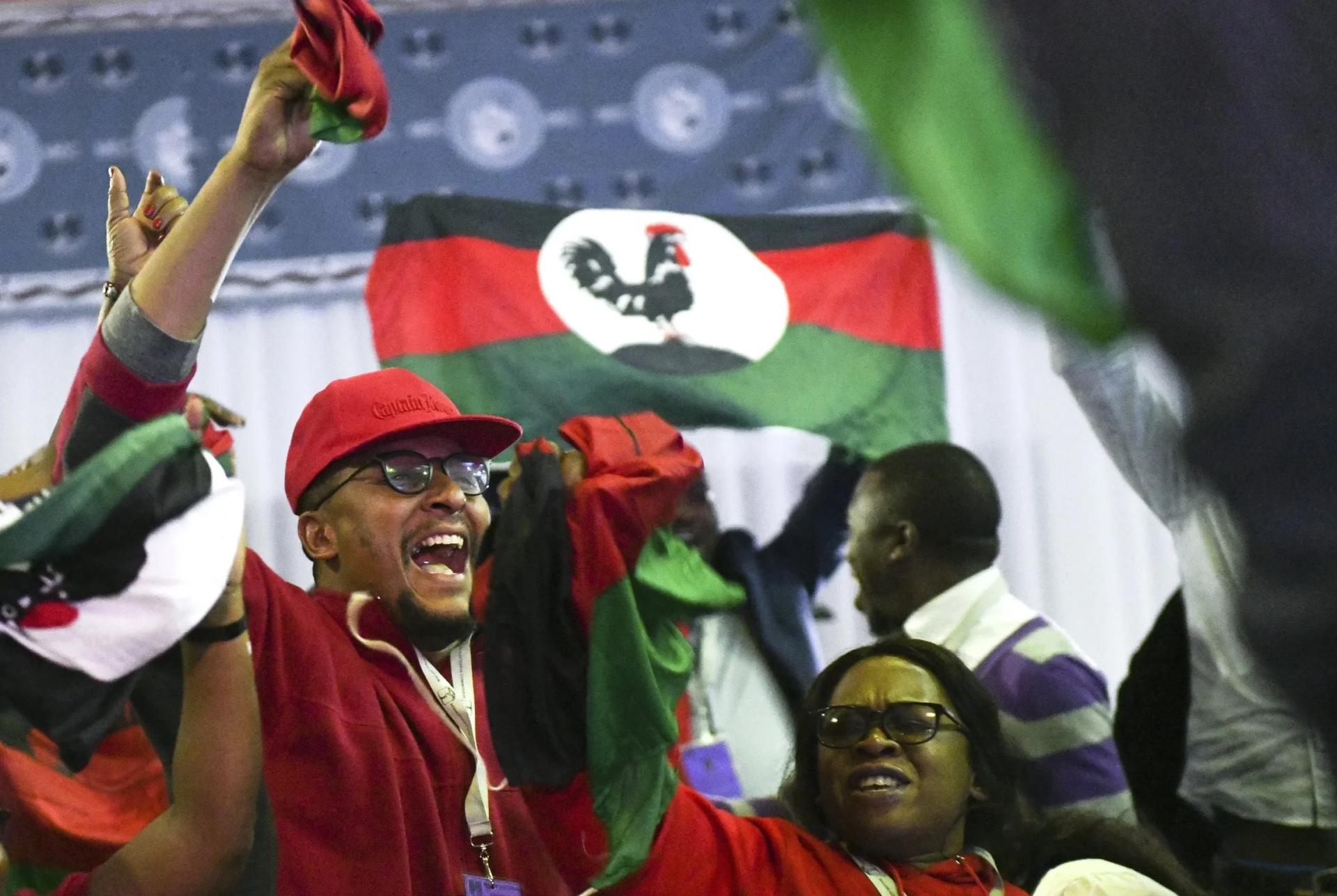YAOUNDÉ, Cameroon – Catholic bishops of Malawi say influential people “from the top down” are getting rich at the expense of the ordinary citizens of the southern African country.
Four years ago, the people of Malawi mobilized in protest, demanding change in a nation suffering from corruption, unemployment, and poverty. The protestors seemed victorious with the election of Lazarus McCarthy Chakwera, at the helm of a political alliance called the Tonse Coalition June 23, 2020. He unseated the 80-year-old incumbent, Peter Mutharika, securing 58.5 percent of the votes and promised to usher in a new era of leadership.
The 65-year-old Chakwera promised a new dawn for the country of nearly 21 million inhabitants of the small landlocked country.
Four years later, the Catholic bishops of the country assert that his leadership has become a chronicle of unfulfilled pledges. In their February 25 Pastoral Letter, titled “The Tragic Tale of Malawi,” the bishops deliver a scathing assessment of the president and his administration.
“If Malawians ask themselves ‘Am I better off now than I was four years ago?’, the resounding answer for the vast majority of Malawians would be an emphatic ‘no,’” the letter begins.
That resounding ‘no’, the bishops explain, will be contingent on the failures the government has registered so far.
Malawi is over 82.3 percent Christian – 58.5 percent Protestant and 17.2 percent Catholic – and the bishops have a lot of influence in the country.
The bishops blasted the Tonse Alliance for entrenching corruption and nepotism and widening the country’s economic inequalities.
“From the top down, people with high connections are unjustly turning into multimillionaires overnight to the detriment of the majority of people who are being kept in grinding poverty,” their letter says.
They said the Chakwera government has made it increasingly harder for institutions that should be checking corruption to function and noted that oversight institutions have been systematically weakened and “rendered useless.”
“The fight against corruption has been allowed to collapse. Shame on those who have allowed this to happen! What remains is a game of make-believe, the mere appearance of fighting corruption,” the bishops note.
The religious leaders observed that while the citizens of the country are steadily sinking into poverty, the government officials merely pay lip service to cutting down on public spending.
Instead, they indulge in costly overseas trips that deplete the national treasury. Unfortunately, the bishops say it is the ordinary citizens who bear the brunt of this governmental extravagance.
“The suffering in the villages has worsened. Some families face starvation, as they could not afford the fertilizer that was on the market, and further problems due to erratic rains,” the Catholic leaders complained.
“Parents/guardians cannot afford school/college fees for their children/wards and many students/pupils are forced out of all levels of education. As well as an injustice to those immediately affected, this will have negative repercussions for our country going forward,” they continue.
“Our roads continue to deteriorate rapidly,” they said and noted that some of the country’s main roads have become “an embarrassment to our nation.”
They also blasted the government for failing to stem the tide of attacks on older people who are often accused of witchcraft.
“Some elderly people in Malawi live in fear that their lives are in danger. Many older men and women face the reality of being victims of witchcraft-based violence and other grave human rights violations and abuses,” the bishops write.
Last year, 25 elderly people were killed and 78 were tortured for alleged involvement in witchcraft.
With all these problems, the bishops used a very strong and unflattering image to describe where the Tonse Alliance Government has led the country.
“We feel very sorry to say that because of all the difficulties and failures, most Malawians have lost hope in the Tonse Government and its leadership. In spite of all the excitement that the Tonse Government would lead Malawians to the Promised Land, only four years later, to the disappointment of all except the few well-connected people, Malawi has ended up at Bagamoyo,” the bishops said.
Bagamoyo is an old trading port on Tanzania’s East African coast that became infamous for slave trade in the 19th century. If a slave arrived there, there was no hope of ever regaining their freedom.
“Instead of reaching the promised land of prosperity, we are bogged down in the same land we wanted to leave, namely the land of hunger, disease, poverty, and corruption. Hence, most Malawians, except the very few well-connected ones, feel strongly that there is nothing else they can do to turn around the country or improve the deteriorating living conditions,” the bishops said.
The Catholic leaders did propose a way forward, emphasizing the need to strengthen oversight institutions to combat poverty effectively. They also advocated new legislation to safeguard older individuals from unjust brutality based on witchcraft accusations. Additionally, they called for the establishment of a robust legal framework to ensure judicial accountability.
The Minister of Information spokesperson, Mosses Kunkuyu, expressed appreciation for the letter from the bishops.
“We are not going to engage them in item-by-item response, but instead we will not get tired of utilizing the engagement that we do have with the clergy from time to time,” he said in a statement just hours after the bishops published their letter.













